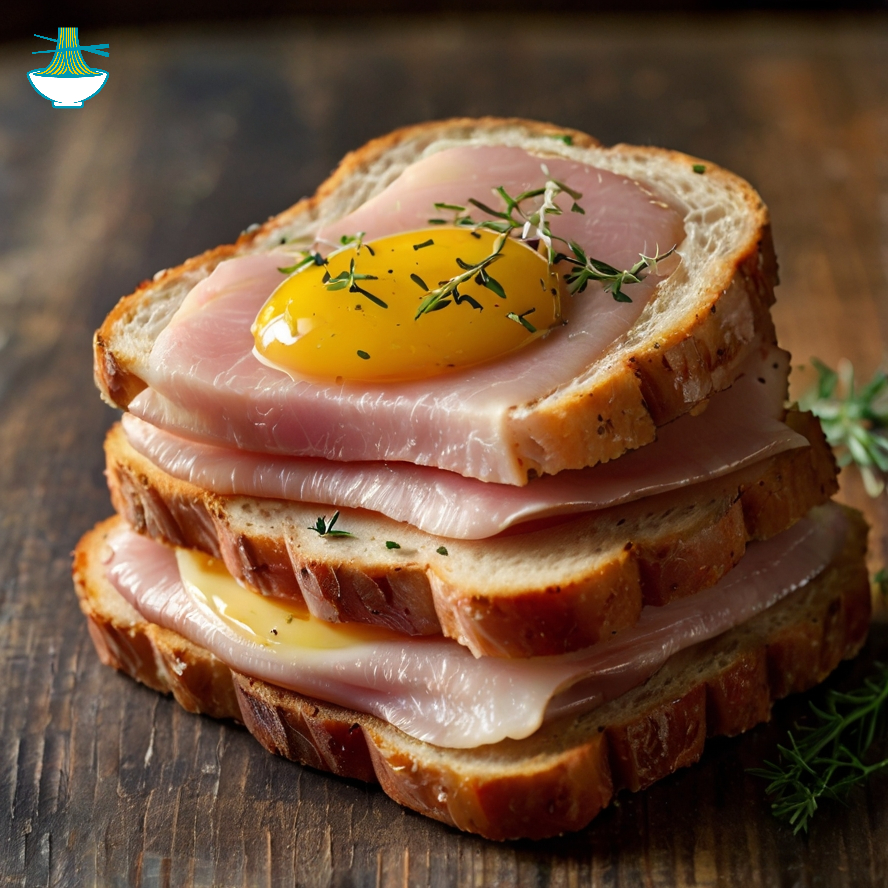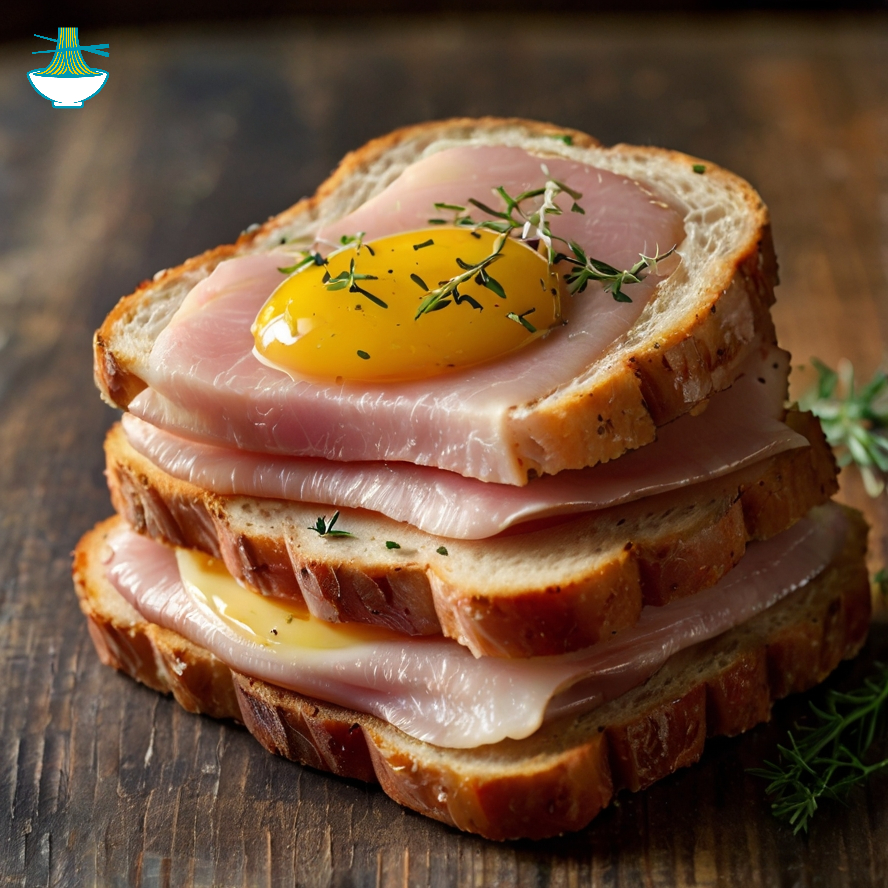Peameal bacon, also known as Canadian bacon, is a unique type of cured pork that features a lean pork loin coated in cornmeal. This traditional Canadian delicacy is celebrated for its tender texture and savory flavor. Often enjoyed as part of a hearty breakfast or in sandwiches, peameal bacon offers a versatile and delicious option for many dishes.

The term "peameal" originates from the traditional practice of rolling the pork loin in ground yellow peas, which was eventually replaced by cornmeal. This method of preservation and flavor enhancement has been a staple in Canadian cuisine for generations. Peameal bacon remains a cherished part of Canada's culinary heritage, often featured in classic breakfast spreads or savory sandwiches.
Ingredients:
- 2 lb pork loin
- 1 cup cornmeal
- 2 tsp salt
- 1 tsp black pepper
- 1/4 cup maple syrup (optional for serving)
Instructions:
1. Prepare the Pork: Trim all fat from the pork loin, leaving only the lean meat. Rinse the pork loin and pat it dry with paper towels.
2. Season the Pork: In a mixing bowl, combine cornmeal, salt, and black pepper. Mix well.
3. Coat the Pork: Rub the cornmeal mixture over the pork loin, pressing it into the meat to ensure it sticks.
4. Cook the Bacon: Heat a large skillet over medium-high heat. Add a small amount of oil and fry the peameal bacon for 3-4 minutes on each side, or until crispy and golden brown.
5. Rest and Slice: Remove the bacon from the skillet and let it rest for a few minutes before slicing.
6. Serve: Drizzle with maple syrup if desired, and serve hot.
Notes:
- Peameal bacon can also be grilled or baked for a healthier alternative.
- Use a lean pork loin to ensure the cornmeal coating adheres properly.
- For extra flavor, consider adding herbs and spices like thyme, garlic powder, or paprika to the cornmeal mixture.
Peameal bacon is a leaner alternative to traditional bacon, offering a lower fat and calorie content while still providing a good source of protein. However, as a processed meat, it should be enjoyed in moderation as part of a balanced diet.

Nutrition Value:
1. Pork Loin (2 lb)
- Calories: 1,160 kcal (approx. 580 kcal per pound)
- Carbohydrates: 0 g
- Protein: 128 g (approx. 64 g per pound)
- Fat: 64 g (approx. 32 g per pound)
- Sodium: 280 mg (approx. 140 mg per pound)
- Cholesterol: 370 mg (approx. 185 mg per pound)
- Vitamins: Good source of Vitamin B6 and Vitamin B12
- Minerals: Rich in iron, phosphorus, and zinc
- Nutritional Benefit: Lean pork loin is an excellent source of high-quality protein, essential for muscle repair and growth. It also provides important vitamins and minerals, supporting overall health.
2. Cornmeal (1 cup)
- Calories: 440 kcal
- Carbohydrates: 94 g
- Protein: 8 g
- Fat: 2 g
- Sodium: 2 mg
- Cholesterol: 0 mg
- Vitamins: Good source of Vitamin B6 and folate
- Minerals: Contains magnesium, iron, and zinc
- Nutritional Benefit: Cornmeal is rich in complex carbohydrates, providing sustained energy. It also contributes to a balanced diet with its vitamin and mineral content, including B vitamins that support energy metabolism and iron for oxygen transport.
3. Salt (2 tsp)
- Calories: 0 kcal
- Carbohydrates: 0 g
- Protein: 0 g
- Fat: 0 g
- Sodium: 4,600 mg (approx. 2,300 mg per tsp)
- Cholesterol: 0 mg
- Vitamins: None
- Minerals: Sodium
- Nutritional Benefit: Salt is primarily used for flavoring and preserving food. It provides sodium, which is essential for maintaining fluid balance and proper nerve and muscle function. However, excessive sodium intake can lead to health issues like high blood pressure.
4. Black Pepper (1 tsp)
- Calories: 6 kcal
- Carbohydrates: 1.5 g
- Protein: 0.2 g
- Fat: 0.1 g
- Sodium: 0 mg
- Cholesterol: 0 mg
- Vitamins: Contains small amounts of Vitamin K
- Minerals: Provides manganese and iron
- Nutritional Benefit: Black pepper adds flavor and has antioxidant properties. It also aids digestion and enhances the absorption of nutrients.
5. Maple Syrup (1/4 cup, optional)
- Calories: 210 kcal
- Carbohydrates: 54 g
- Protein: 0 g
- Fat: 0 g
- Sodium: 2 mg
- Cholesterol: 0 mg
- Vitamins: Contains small amounts of Vitamin B2 (riboflavin)
- Minerals: Provides manganese, calcium, and potassium
- Nutritional Benefit: Maple syrup adds natural sweetness and is a source of manganese and antioxidants. It provides energy from carbohydrates but should be used in moderation due to its high sugar content.


Comments